Ursuline Sister Michele Morek shared harrowing stories of atrocities committed against women around the world, but then offered inspiring examples of how progress is being made, as she addressed a gathering at Brescia University on April 4.
Sister Michele was the keynote speaker for the 50th anniversary year of the Contemporary Woman Program at Brescia. She is the coalition coordinator for UNANIMA International, a nongovernmental organization of 18 religious communities that advocates at the United Nations on behalf of women and children (especially those living in poverty), immigrants and refugees, and the environment.
“In 1963, most Americans did not believe that gender equality was possible or even desirable,” Sister Michele said. That was the year Dr. Philip Law, a Chicago physician, noted to Ursuline Sister Francesca Hazel that many of his female patients lacked self-esteem and an understanding of who they were. That was the impetus for the Contemporary Woman Program at Brescia, one of the first such programs for women anywhere in the United States.
While progress has been made in America in supporting women, there is much work to be done around the world. Sister Michele told story after story about women in African, Middle Eastern or Asian cultures who are murdered, raped or sexually mutilated by husbands or family members as part of a culture that treats women as subhuman or stains on the family name. She quoted the current secretary-general of the United Nations, Ban Ki-moon, as saying “Culture is no excuse for violence against women.”
In some African countries, wars are being fought with a new strategy: kidnapping and raping the wives and daughters of the opponents, Sister Michele said. She quoted Chouchou Dubuisson, a journalist and human rights activist, who said, “When a gorilla is killed in the mountains, there is an outcry and money is donated. Yet more than 500,000 women are raped and there is silence.”
Sister Michele said some of these cultures are being changed because women are speaking up and demanding their rights. Some of the women she mentioned included:
- Asha Elmi, a Somali woman who formed the Sixth Clan women’s movement to advance female participation in Somali politics. In August 2012, she was elected to the Somalia Parliament.
- Mukhtar Mai, a Pakistani woman who survived a gang rape in 2002 and rather than complying with the custom of committing suicide, pressed charges against her rapists and brought worldwide attention to Pakistan’s custom of honor revenge.
- Mairead Corrigan and Betty Williams, who won the 1976 Nobel Peace Prize for their efforts in encouraging a peaceful resolution to the troubles in Northern Ireland.
- Rebecca Lolosoli, who formed the Kenyan village of Umoja Unso, or “Women United,” a refuge for Samburu women who previously were raped by British soldiers and then divorced for bringing shame to their husbands.
- Wangarii Maathai, who founded the Green Belt Movement in Kenya that focused on planting trees, environmental conservation and women’s rights. In 2004, she became the first African woman to receive the Nobel Prize for her contribution to sustainable development, democracy and peace.
Here are some photos from those in attendance at Sister Michele’s talk.
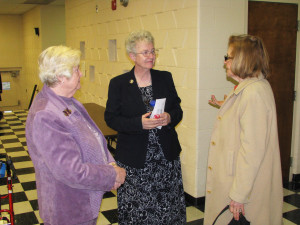
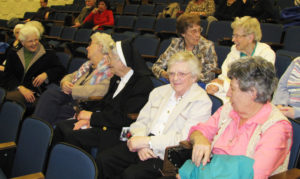
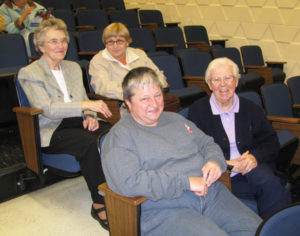
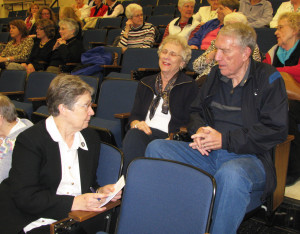
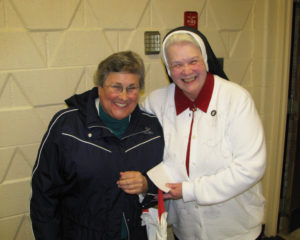
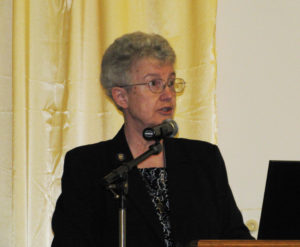
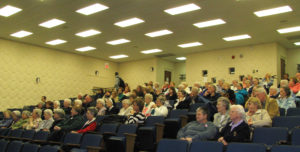
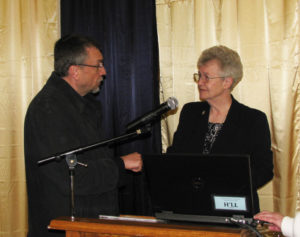
Comments
Thank You, God, for Sr.Michele!